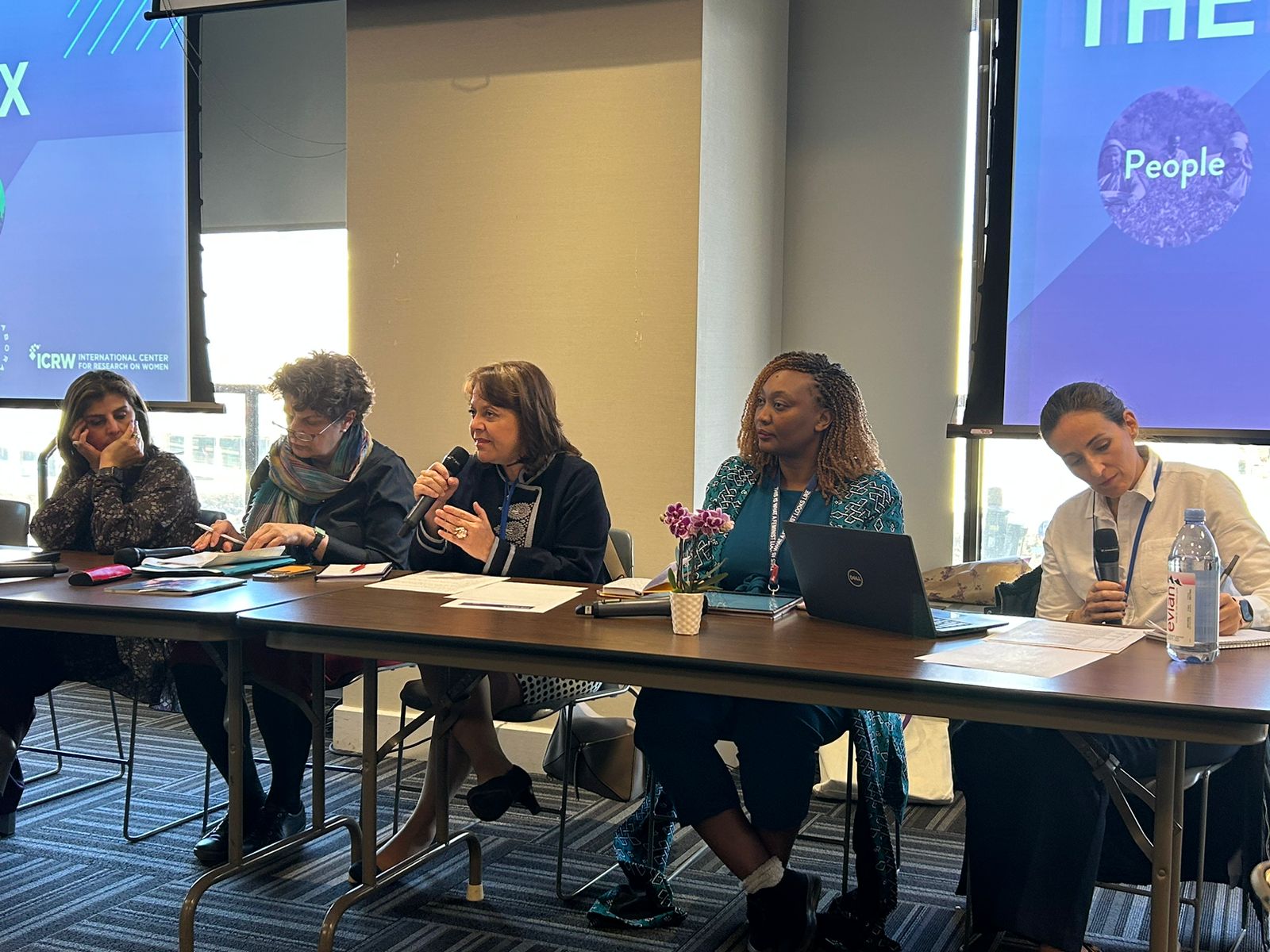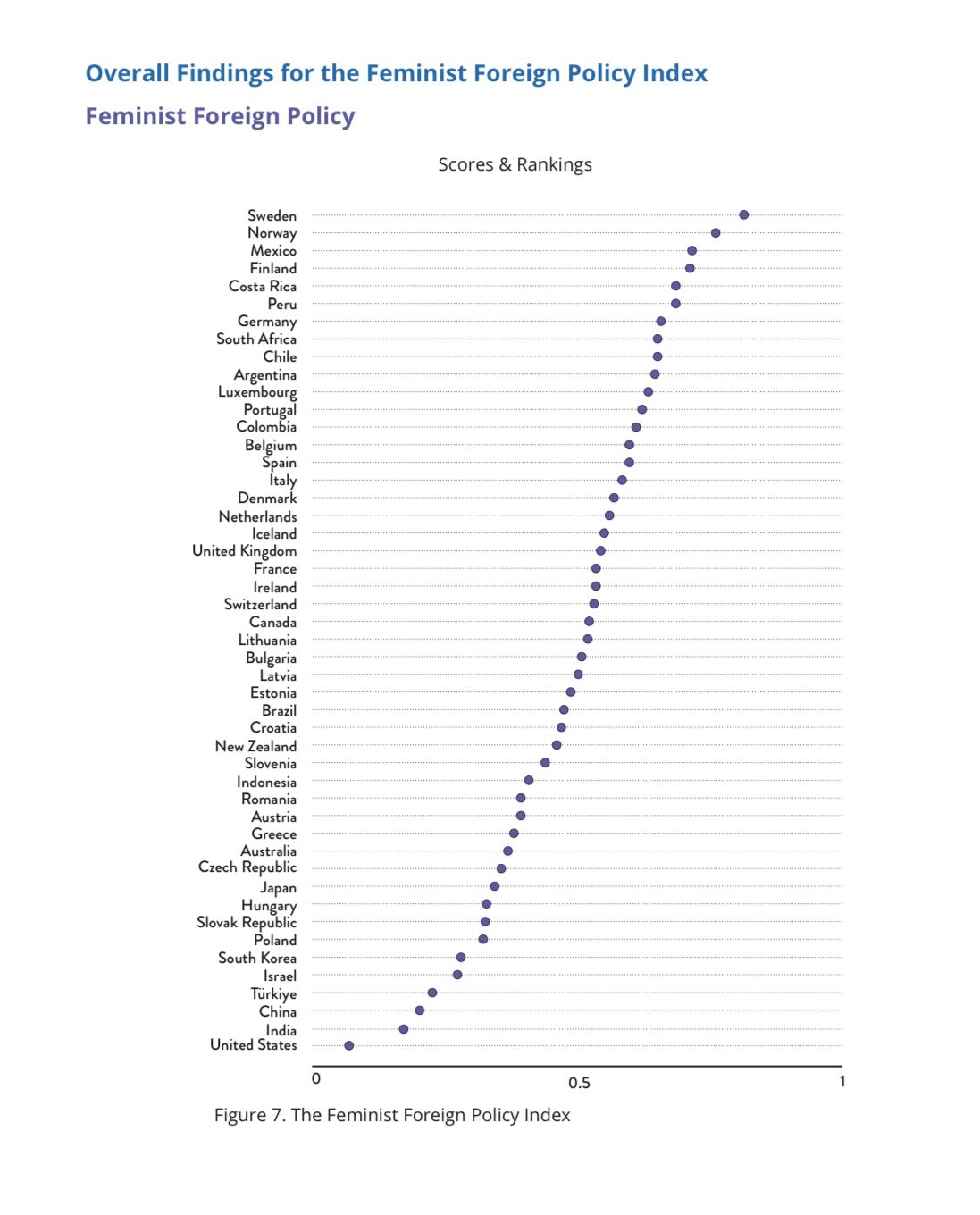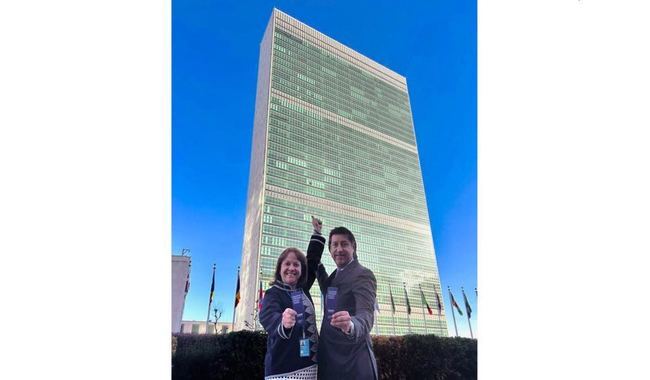- On the Feminist Foreign Policy Index, Mexico ranks in the top three countries, along with Sweden and Norway
- Mexico was the first country in the Global South to adopt a feminist foreign policy in 2020
Today, during the 67th session of the Commission on the Status of Women (CSW67), which is taking place in New York City, the Feminist Foreign Policy Index: A Quantitative Evaluation of Feminist Commitments (FFP Index) was presented. The study, conducted by the International Center for Research on Women (ICRW), recognizes Mexico's feminist foreign policy as one of the three best in the world, behind only those of Sweden and Norway, and as the first in the Global South.
During the presentation of the FFP Index, ICRW Senior Global Policy Advisor Foteini Papagioti said that the Index is a quantitative framework that explores the potential of foreign policies and what they can do. The index assesses the role that countries play in eradicating the differentiated effects that multiple and interconnected crises have on the lives of women, adolescents, and girls in all their diversity.
It reviews 27 indicators and evaluates the 48 countries that are members or candidates for membership of the Organization for Economic Cooperation and Development (OECD) in seven priority foreign policy areas: 1) peacekeeping, 2) cooperation and development assistance, 3) migration, 4) labor protection, 5) economic justice, 6) institutional gender commitments, and 7) environment and climate change.
On behalf of the Mexican government, Martha Delgado, Undersecretary for Multilateral Affairs and Human Rights at the Foreign Ministry, congratulated the ICRW for the study, which compiles verifiable information from countries with feminist foreign policies that reflects the fulfillment of their commitments and, in particular, their progress in guaranteeing the rights of women, adolescents, and girls.
Undersecretary Delgado expressed her appreciation for the high ranking given to Mexico's feminist foreign policy, which in only three years has received worldwide recognition, and she congratulated all the areas involved in its implementation in the Mexican government, Foreign Ministry and, in particular, the area for human rights and democracy of the Foreign Ministry for achieving this ranking in this short time.
Cristopher Ballinas, Director General of Human Rights and Democracy, said that, for Mexico, this "demonstrates the constant and committed effort of the Mexican State with human rights and mainly with the rights of women, adolescents and girls in all their diversity. Mexico sees the rights of women, adolescents and girls as a pillar of just and egalitarian societies. It is not only a recognition, but also a great responsibility to maintain the highest standards in international action, and to ensure that these have an impact on domestic politics and thereby reduce femicides and the gender violence that has so greatly affected women in our country."
Also participating in the event were the Vice Minister of Multilateral Affairs of Colombia, Laura Gil; the Director for Human Rights and Global Health of the Federal Foreign Office of Germany, Helga Bart; African Women's Development and Communication Network Executive Director Memory Kachambwa; and the Director of the Feminist Foreign Policy Collaborative, Lyric Thompson.
In their remarks, they said that countries with feminist foreign policies prioritize the gender perspective in important issues such as parity, the environment, peace and security, economic development, autonomy, and health. The study can be found at: https://www.ffpindex.org/
Foreign Secretary Marcelo Ebrard announced that Mexico would adopt a feminist foreign policy during the 74th UN General Assembly in September 2019, and it was presented at the 31st Meeting of Ambassadors and Consuls in January 2020. Mexico's feminist foreign policy is based on a set of five principles that seek to guide the government's actions to reduce and eliminate structural differences, gender gaps and inequalities, in order to build a more just and prosperous society: 1. Feminist foreign policy with a gender perspective and a feminist agenda abroad 2. Parity within the Foreign Ministry 3. A Foreign Ministry free of violence that is safe for all 4. Visible equality, and 5. Feminism in all areas of the Foreign Ministry.





